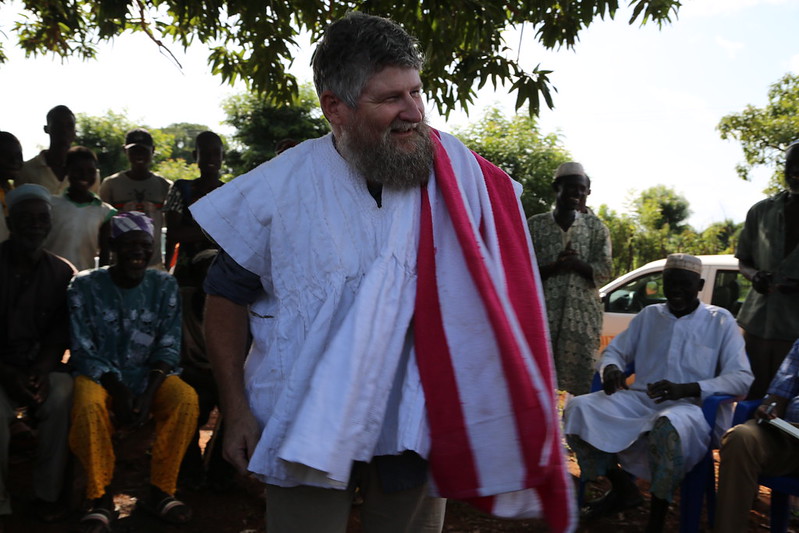Focus on achieving wider impacts and building resilience for larger populations, Africa RISING urged

The Africa Research in Sustainable Intensification for the Next Generation (Africa RISING) program should keep working towards achieving wider impacts and building resilience for larger populations, the United States Agency for International Development (USAID) Bureau for Food Security program leader for sustainable intensification, Jerry Glover has said.
Glover was speaking to partners of the Africa RISING West Africa project during a visit to sites in Ghana on 11–15 September 2018.
One of the ways to achieve this goal, he noted, is by integrating Africa RISING activities into regionally focused initiatives that are funded by USAID in West Africa such as the soon-to-be unveiled soil health consortium. These regional-centric efforts, Glover explained, would ensure stronger coordination and streamlining of investments by the agency and facilitate wider spread of improved agricultural technologies to benefit more smallholder farmers.
‘Our centrally-funded research activities (from Washington DC) such as the Africa RISING work in Ghana and Mali should address this regional need. Working with other USAID-funded programs will increase ease of access to information about validated agricultural technologies. It would also make it easier for USAID country missions that fund different in-country development activities to fund scaling of technologies that are backed up by great research,’ explained Glover. He gave the soil health consortium as an example, saying USAID is looking to ensure that all its investments on soils research and development in West Africa are generating information and recommendations that address high-level consensus-based issues across agricultural production zones in the region.
‘If, for example, the USAID Burkina Faso Country Mission is seeking to fund a soils-focused intervention in that country, then we would like to see the great soils interventions (and their corresponding data) from Africa RISING in northern Ghana or southern Mali being made easily accessible and available for the Burkina country mission to refer to and if relevant to the case, being used there. This is one of the ways of translating research into development outcomes!’ he added.
Glover also urged the project team to also put more focus on building resilience for smallholder farmers by collaborating with the Feed the Future Sustainable Intensification Innovation Lab (SIIL), which is already implementing activities aimed at strengthening farmers’ resilience in Burkina Faso and Senegal. He added that USAID was keen on seeing lessons from the first phase of Feed the Future program applied to ensure sustainability of gains in nutrition and productivity for farmers to reduce the vulnerability of farming households that results from weather variations and market slumps.
Irmgard Hoeschle-Zeledon, the Africa RISING West Africa and East/Southern Africa project manager, said that the project’s orientation in the second phase was already in certain ways aligning to ensuring interventions are regionally relevant and achieving impact at scale. She said the project will work towards integrating its work with that of the soil health consortium and other initiatives supported the agency. Hoeschle-Zeledon also noted that Africa RISING will continue sharing with USAID information on the interventions and technologies tested by the program.
At the meeting, Fred Kizito, Africa RISING West Africa project chief scientist, highlighted the West Africa project’s recent review and planning meeting, held in June, where partners discussed the project’s regional relevance and decided to achieve this was by integrating the use of geographical information systems (GIS) and modelling efforts in in their 2018/19 activities.
During the visit, the Africa RISING project team interacted with farmers in five communities in the Northern and Upper East regions of Ghana. The farmers said the improved agricultural technologies and practices introduced by Africa RISING had improved the productivity of their farms. The team also made courtesy visits to the agricultural directors in the two regions where options for furthering the partnership with the Ghana Ministry of Agriculture in the region were explored.




